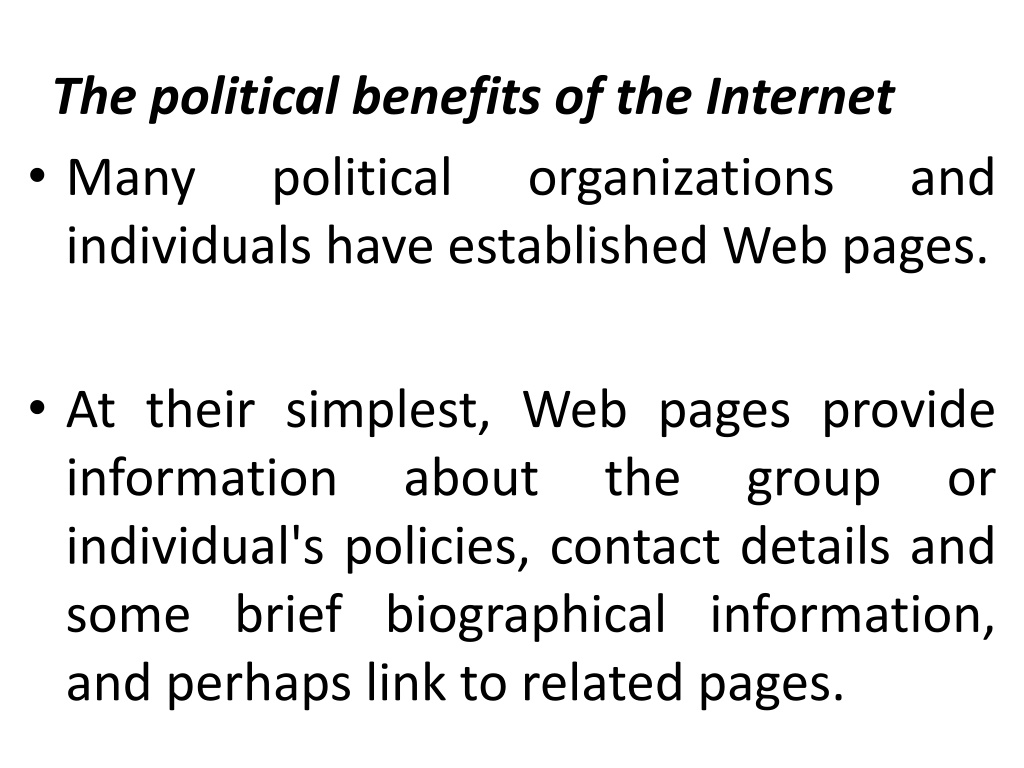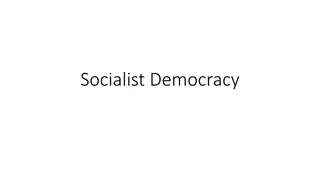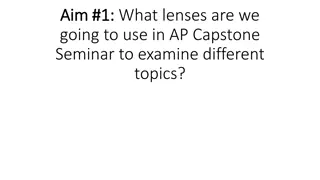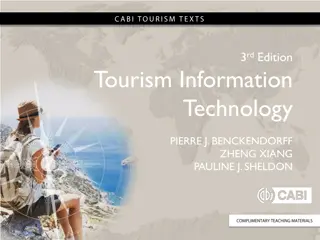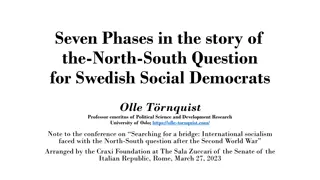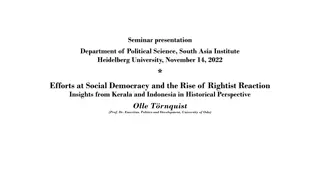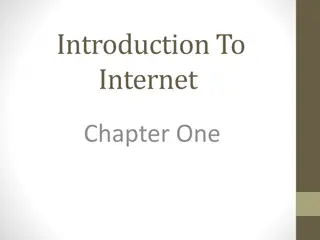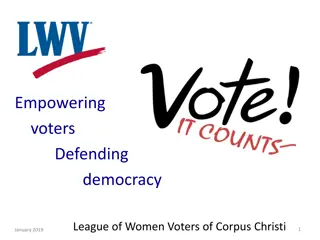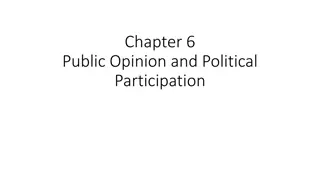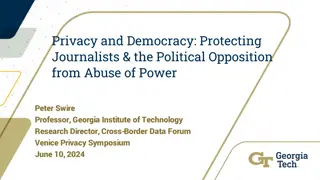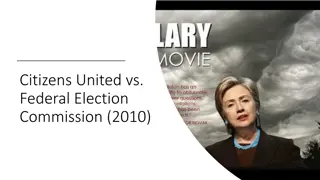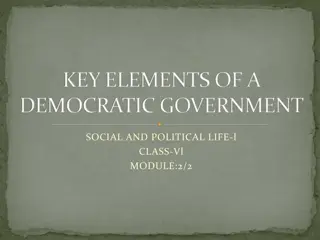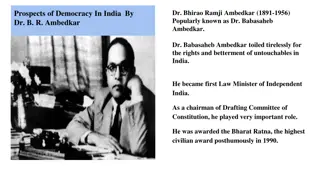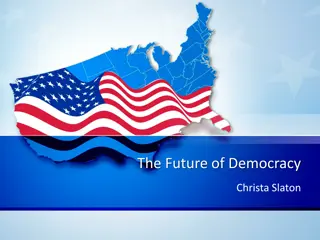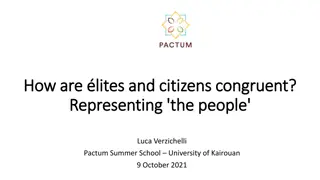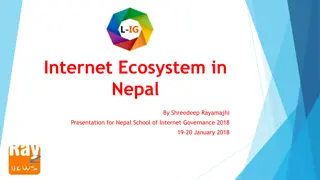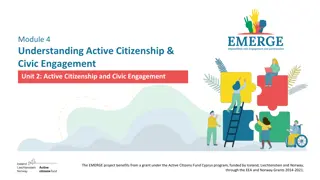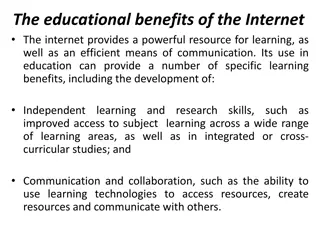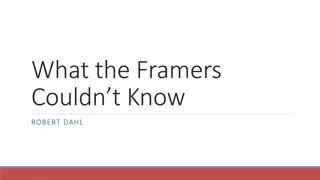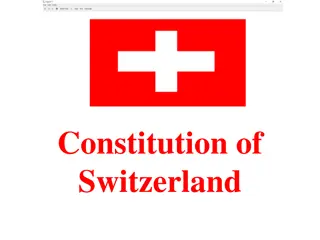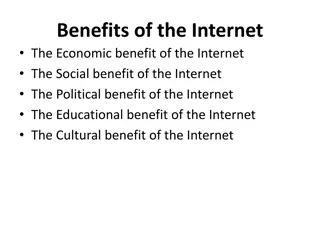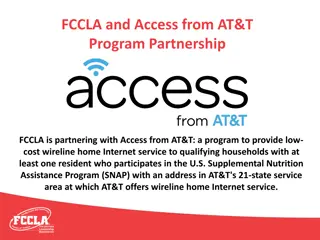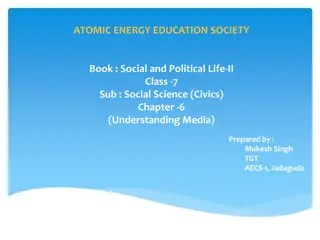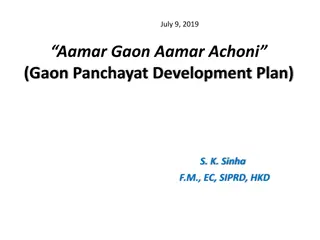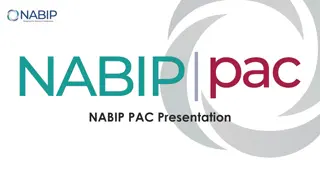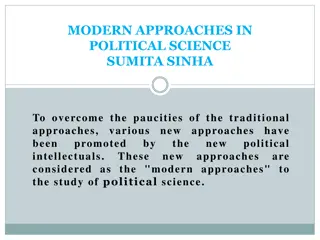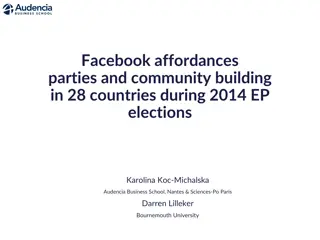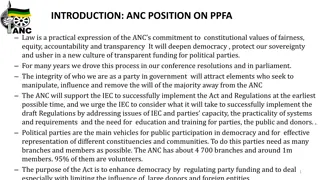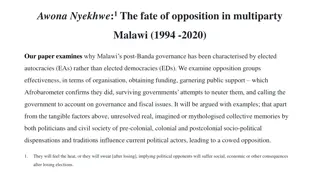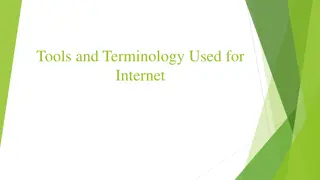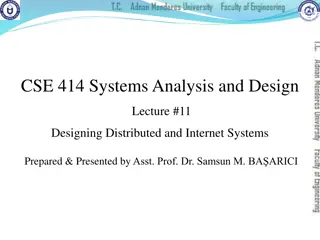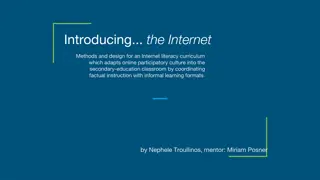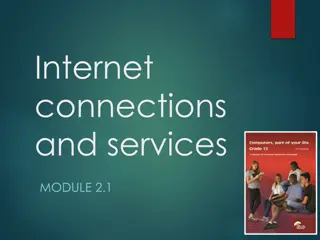Political Benefits of Internet: Empowering Democracy Online
Political individuals utilize websites to promote policies, connect with constituents, and engage in online voting systems. These platforms offer accessibility, information dissemination, and interactive features such as chat rooms and multimedia resources. However, there is also a dark side with issues like denigration of opponents and spreading misinformation. Overall, the Internet has become a powerful tool in shaping political discourse and engaging citizens in the democratic process.
Download Presentation

Please find below an Image/Link to download the presentation.
The content on the website is provided AS IS for your information and personal use only. It may not be sold, licensed, or shared on other websites without obtaining consent from the author. Download presentation by click this link. If you encounter any issues during the download, it is possible that the publisher has removed the file from their server.
E N D
Presentation Transcript
The political benefits of the Internet Many political individuals have established Web pages. organizations and At their simplest, Web pages provide information about individual's policies, contact details and some brief biographical information, and perhaps link to related pages. the group or
Internet voting systems have gained popularity and have been used for government elections and referendums in the United Kingdom, Estonia and Switzerland as well elections in Canada and party primary elections in the United States and France. as municipal
Internet voting is a type of voting, embracing electronic means of casting a vote. It can also involve transmission of ballots and votes via the Internet. Internet voting technology can provide improved accessibility voters. for disabled
The following list summarizes some of the facilities that are found on political Web sites: Policies, platforms, rules and other organisational details Biographical details about key people, and links to their home pages Statements about achievements News items and press releases Links to stories at news Web sites that support their point of view Listings of mistakes made by opponents, or details about social ills they blame on opponents
Registration forms for potential volunteers or interns Guest books, so that visitors can leave their comments, and/or user surveys that can be used to improve the site Links to sites belonging to organizations they support Subscription forms for e-mail distribution lists Links to how opponents have voted on issues
Links to pages that denigrate opponents Spreadsheets that can be used to calculate the effect of an opponent's policies Interactive 'chat rooms' where citizens can share and debate ideas and where politicians can participate in question and answer sessions Links to audio or video resources Calendars of events and chronologies that may be searchable
Links to Federal/State/Local governments Free software that can enable the user's browser to access extra resources (i.e. Real Video technology) Screen savers consisting of images of key individuals, slogans, etc. Games which reinforce their political messages Sales of fundraising merchandise Forms to solicit donations.
